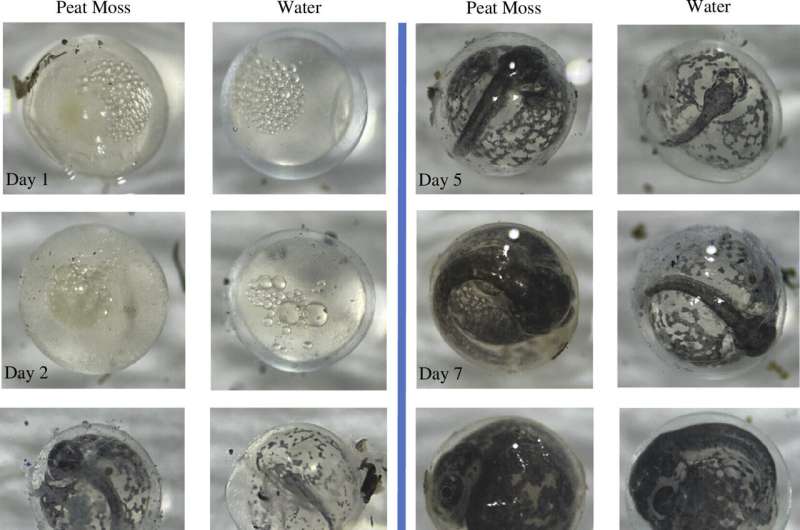This article has been reviewed according to Science X's editorial process and policies. Editors have highlighted the following attributes while ensuring the content's credibility:
fact-checked
peer-reviewed publication
trusted source
proofread
Killifish can adjust their egg-laying habits in response to predators, study shows

Some species of fish can change their egg-laying habits in response to predators in the area in order to survive, according to new research from The University of Texas at Arlington.
It has long been observed that organisms modify their traits, including reproductive patterns, in response to changes in their environment. This type of evolutionary plasticity has been observed in many types of animals in different habitats and with varying predators.
"We knew that fish who laid their eggs externally often adapted depending on the predators in the area, but we did not know how quickly species could change to these externals pressures," said biology Professor Matthew Walsh, who recently published a paper on the topic in the Proceedings of the Royal Society B.
For his research, Dr. Walsh and biology lab technician Christopher Roden studied a small type of fish called the killifish that lives on the island of Trinidad in the Caribbean. Ranging in size from about 2 to 6 inches, the killifish are ideal for evolutionary studies because they are highly adaptable to their surroundings. Some types of killifish are even known to be amphibious, able to live on land to avoid predators.
The researchers tested the differences in egg-hatching plasticity among killifish living in sites with and without predators. They then examined the reproductive habits of those two populations by measuring the rates of hatching when eggs were laid submerged in water versus outside water on the surface of moist peat moss. The timing, hatching and offspring growth rates between the two groups of fish were then compared.
"Our study found striking differences in egg-hatching plasticity among killifish living in different habitats," said Walsh. "This research provides new insights into how aquatic organisms adapt and evolve to changes in their environment. These findings may be particularly important in predicting how species are able to adapt to external pressures, such as those caused by climate change."
More information: Matthew R. Walsh et al, Fish (eggs) out of water: evolutionary divergence in terrestrial embryonic plasticity in Trinidadian killifish, Proceedings of the Royal Society B: Biological Sciences (2024). DOI: 10.1098/rspb.2024.0083
Journal information: Proceedings of the Royal Society B
Provided by University of Texas at Arlington




















